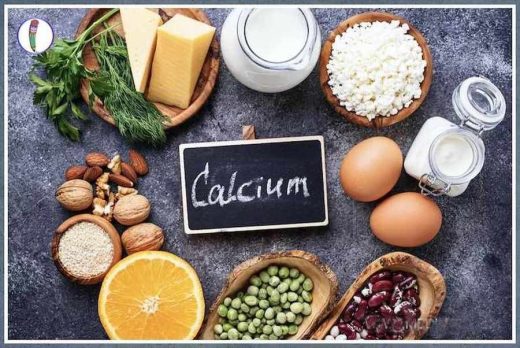Calcium is an essential mineral with important functions that cannot be synthesized in the body and must be obtained through food. Calcium is directly related to growth, development, nervous system, circulatory system and bone health. Therefore, calcium deficiency can cause some serious symptoms.
Milk and dairy products such as milk, yoghurt and cheese; Molasses, sesame, hazelnuts, peanuts and similar oil seeds, green leafy vegetables, dried legumes and dried fruits are foods rich in calcium.
What is calcium?
The place where calcium is found most, at a rate of 99 percent, is in the bones. The remainder is distributed among teeth, soft tissue, plasma and extramuscular fluids.
The skeleton, which is a living tissue, is the body’s calcium reservoir. Calcium is constantly removed from the bones (resorption), returned to the bones and stored. This process continues from childhood until about age 35, if calcium is adequately used, and there is a gradual increase in bone density. The body needs calcium to protect bones, contract muscles, expand blood vessels, and secrete hormones and enzymes.
Calcium has two main functions in the body. Supporting structural integrity; to regulate metabolic functions. It is also important for a number of events such as cellular structure, inter- and intra-cellular metabolic function, signal transmission, muscle contraction (including cardiac muscle), nerve function, enzyme activities, and blood clotting.
If the body cannot get enough calcium from food, it uses it from bones; If it absorbs more calcium than it accumulates, bone density decreases and the risk of osteoporosis increases. Calcium is found naturally in many foods. There are also calcium supplements.
The benefits of calcium
Visits: 101



